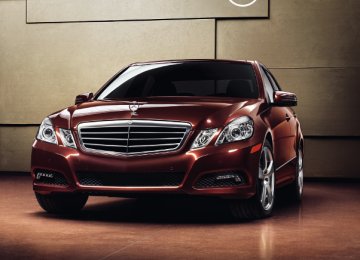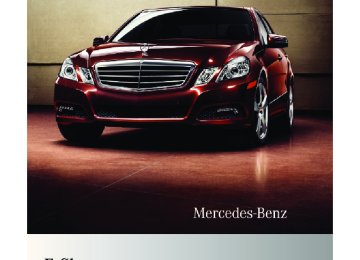- Download PDF Manual
-
health.
! To maintain the engine’s durability and performance, premium unleaded gasoline must be used. If premium unleaded gasoline is not available and low octane gasoline is used, follow these precautions: RHave the fuel tank only partially filled
with unleaded regular gasoline and fill up with premium unleaded gasoline as soon as possible.
RAvoid full throttle driving and abrupt
acceleration.
RDo not exceed an engine speed of
3 000 rpm if the vehicle is loaded with a light load such as two persons and no luggage.
RDo not exceed 2/3 of maximum
accelerator pedal position if the vehicle is fully loaded or operating in mountainous terrain.
Fuel requirements Only use premium unleaded gasoline. The octane number (posted at the pump) must be 91 min. It is an average of both the Research Octane Number (RON) and the Motor Octane Number (MON): (RON+MON)/2. This is also known as the ANTI-KNOCK INDEX. Reformulated gasolines (RFG) and/or unleaded gasoline containing oxygenates such as ethanol, TAME, ETBE, IPA, IBA, and TBA can be used provided the ratio of any one of these oxygenates to gasoline does not exceed 10%; MTBE must not exceed 15%. The ratio of methanol to gasoline must not exceed 3% plus additional cosolvents. Using mixtures of ethanol and methanol is not allowed. Gasohol, which contains 10%
Fuels, coolants, lubricants, etc.
363
ethanol and 90% unleaded gasoline, can be used. These blends must also meet all other fuel requirements, such as resistance to spark knock, boiling range, vapor pressure, etc.
Diesel engine Only use commercially available vehicular ULTRA-LOW SULFUR HIGHWAY DIESEL FUEL (ULSD, 15 ppm SULFUR MAXIMUM) that meets the ASTM D975 standard. Failure to use ULTRA-LOW SULFUR HIGHWAY DIESEL FUEL (ULSD) can severely damage the vehicle’s exhaust after-treatment device. To prevent malfunctions, diesel fuel with improved cold flow characteristics is offered in the winter months. Check with your fuel retailer. ! Do not fill the tank with gasoline. Do not blend diesel fuel with gasoline or kerosene. The fuel system and engine will otherwise be damaged, which is not covered by the Mercedes-Benz Limited Warranty.
For further information on diesel fuel pump labeling, contact an authorized Mercedes- Benz Center or visit www.mbusa.com (USA only). Biodiesel (FAME = Fatty Acid Methyl Ester) containing fuels Mercedes-Benz USA approves the use of B5
(standard ULSD which may contain a maximum of 5% biodiesel) in all Common-rail injection (CDI) and BlueTEC diesel engines. Diesel fuels containing a higher percentage of biodiesel, e.g. B20, as well as straight biodiesel may cause severe damage to your engine/fuel system and are not approved. Please ask your service station personnel for further information. If the B5 biodiesel blend is not sufficiently labeled to clearly indicate that it meets the ULSD standard, please do not use it. The Mercedes-Benz Limited Warranty does not cover damages caused by the use of fuels212_AKB; 2; 41, en-US d2ureepe,
2009-07-17T09:14:21+02:00 - Seite 364
Version: 2.11.8.1364 Fuels, coolants, lubricants, etc.
not meeting Mercedes-Benz approved fuel standards.
Gasoline additives A major concern among engine manufacturers is carbon build-up caused by gasoline. Mercedes-Benz recommends only the use of quality gasoline containing additives that prevent the build-up of carbon deposits. After an extended period of using fuels without such additives carbon deposits can build up, especially on the intake valves and in the combustion area, leading to engine performance problems such as: RWarm-up hesitation RUnstable idle RKnocking/pinging RMisfire RPower loss In areas where carbon deposits may be encountered due to lack of availability of gasoline which contains these additives, the use of Mercedes-Benz approved additives is recommended. Contact an authorized Mercedes-Benz Center or visit www.mbusa.com (USA only) for a listing of approved products. Follow directions on the product label. Do not blend other fuel additives with fuel. This only results in unnecessary cost and may be harmful to the engine operation. ! Damage or malfunction resulting from
poor fuel quality or from blending additional fuel additives other than those tested and approved by us for use on Mercedes-Benz vehicles are not covered by the Mercedes- Benz Limited Warranty or by any pre-owned or Extended Limited Warranties.
AdBlue® AdBlue® is a non-flammable, non-toxic, colorless and odorless, water-soluble liquid. ! Only use AdBlue® complying with
ISO 22241. Do not blend with additives.
! Rinse surfaces that have come into
contact with AdBlue®, or remove AdBlue® with a moist cloth and cold water immediately. If AdBlue® has crystallized already, use cold water and a sponge. AdBlue® residues will crystallize and soil the affected surfaces.
High ambient temperatures If AdBlue® in the reservoir heats up to above 122‡ (50†) for a long period of time, for example due to direct sunlight, ammonia gas vapors may escape when opening the AdBlue® tank. G Warning! When opening the filler cap of the AdBlue® tank ammonia gas vapors may escape. Refill AdBlue® in a well ventilated area only. Ammonia gas vapors have a pungent odor and are particularly irritating for your skin, mucous membranes, and eyes. Inhaling ammonia gas vapors will cause burning eyes, nose, and throat, as well as coughing and watering eyes.
Low ambient temperatures AdBlue® freezes at a temperature of approximately 12‡ (-11†). Your vehicle is factory equipped with an AdBlue® preheating system. The vehicle can thus be operated at temperatures below 12‡ (-11†).
Special additives ! Only use AdBlue® complying with ISO 22241. Do not add additives to AdBlue® and do not dilute AdBlue® with
212_AKB; 2; 41, en-US d2ureepe,
2009-07-17T09:14:21+02:00 - Seite 365
Version: 2.11.8.1Fuels, coolants, lubricants, etc.
365
water. Otherwise, the BlueTEC exhaust gas aftertreatment system could be damaged. Damage caused by using additives or diluting with water are not covered by the Mercedes-Benz Limited Warranty.
Purity The purity of AdBlue® is of particular importance for avoiding malfunctions in the exhaust gas aftertreatment. If AdBlue® is pumped out of the tank, e.g. during repair work, the same liquid must not be used to refill the tank as its purity is no longer guaranteed. ! Impurities caused for example by other
service products, cleaning agents, and dust result in increased emissions, malfunctions, catalyst damage, or engine damage.
Coolants The engine coolant is a mixture of water and anticorrosion/antifreeze, which provides: RCorrosion protection RFreeze protection RBoiling protection (by increasing the boiling
point)
The cooling system was filled at the factory with a coolant providing freeze protection to approximately -35‡ (-37†) and corrosion protection. ! Add premixed coolant solution only.
Adding water and MB 325.0 Anticorrosion/ Antifreeze separately from each other, could cause engine damage not covered by the Mercedes-Benz Limited Warranty.
If the antifreeze mixture is effective to -35‡ (-37†), the boiling point of the coolant in the pressurized cooling system is reached at approximately 266‡ (130†). The coolant solution must be used year round to provide the necessary corrosion protection
and increase boil-over protection. Refer to the Maintenance Booklet for replacement interval. Coolant system design and coolant used determine the replacement interval. The replacement interval published in the Maintenance Booklet is only applicable if MB 325.0 Anticorrosion/Antifreeze solution or other Mercedes-Benz approved products of equal specification are used to renew the coolant concentration or bring it back up to the proper level. For information on other Mercedes-Benz approved products of equal specification, contact an authorized Mercedes-Benz Center or visit www.mbusa.com (USA only). To provide important corrosion protection, the solution must be at least 50% anticorrosion/antifreeze (equivalent to freeze protection to approximately -35‡ [-37†]). If you use a solution that is more than 55% anticorrosion/antifreeze (freeze protection to approximately -49‡ [-45†]), the engine temperature will increase due to the lower heat transfer capability of the solution. Therefore, do not use more than this amount of anticorrosion/antifreeze. If the coolant level is low, water and MB 325.0
Anticorrosion/Antifreeze should be used to bring it up to the proper level (have cooling system checked for signs of leakage). Please make sure the mixture is in accordance with label instructions. The water in the cooling system must meet minimum requirements, which are usually satisfied by normal drinking water. If you are not sure about the water quality, contact an authorized Mercedes-Benz Center.Anticorrosion/antifreeze Your vehicle contains a number of aluminum parts. The use of aluminum components in motor vehicle engines necessitates that anticorrosion/antifreeze coolant used in
212_AKB; 2; 41, en-US d2ureepe,
2009-07-17T09:14:21+02:00 - Seite 366
Version: 2.11.8.1366 Fuels, coolants, lubricants, etc.
such engines be specifically formulated to protect the aluminum parts. Failure to use such anticorrosion/antifreeze coolant will result in a significantly shortened service life. Therefore, the following product is strongly recommended for use in your vehicle: MB 325.0 Anticorrosion/Antifreeze agent.
Before the start of the winter season (or once a year in hot southern regions), you should have the anticorrosion/antifreeze concentration checked. The coolant is also regularly checked each time you bring your vehicle to an authorized Mercedes-Benz Center for service.
Model
E 350
E 350 4MATIC E 350 BlueTEC E 550
E 550 4MATIC E 63 AMGApproximate freeze protection -35‡ (-37†) 4.4 US qt (4.2 l)
-49‡ (-45†) 4.9 US qt (4.6 l)
6.1 US qt (5.8 l) 5.5 US qt (5.2 l)
6.7 US qt (6.3 l) 6.0 US qt (5.7 l)
5.8 US qt (5.5 l)
6.3 US qt (6.0 l)
Cooling system
212_AKB; 2; 41, en-US d2ureepe,
2009-07-17T09:14:21+02:00 - Seite 367
Version: 2.11.8.1Fuels, coolants, lubricants, etc.
367
Washer system and headlamp cleaning system G Warning! Washer solvent/antifreeze is highly flammable. Do not spill washer solvent/ antifreeze on hot engine parts, because it may ignite and burn. You could be seriously burned.
X Use MB Windshield Washer Concentrate
“MB SummerFit”.
X Mix with water for temperatures above
freezing point.
X Mix with commercially available premixed
washer solvent/antifreeze for temperatures below freezing point.
Washer fluid mixing ratio For temperatures above the freezing point: 1 part “MB SummerFit” to 100 parts water (1.34 fl oz [40 ml] “MB SummerFit” to 1 gal [4.0 l] water) For temperatures below freezing point: 1 part “MB SummerFit” to 100 parts solvent (1.34 fl oz [40 ml] “MB SummerFit” to 1 gal [4.0 l] solvent)
212_AKB; 2; 41, en-US d2ureepe,
368
2009-07-17T09:14:21+02:00 - Seite 368
Version: 2.11.8.1212_AKB; 2; 41, en-US d2ureepe,
2009-07-17T09:14:21+02:00 - Seite 369
Version: 2.11.8.1Service and Literature Your authorized Mercedes-Benz Center has trained technicians and Genuine Mercedes- Benz Parts to service your vehicle properly. For expert advice and quality service, contact an authorized Mercedes-Benz Center. If you are interested in obtaining service literature for your vehicle, please contact an authorized Mercedes-Benz Center. We consider this the best way for you to obtain accurate information for your vehicle. For further information you can find us on the Mercedes-Benz web site www.mbusa.com (USA only) or www.mercedes-benz.ca (Canada only). G Warning! To help avoid personal injury, be extremely careful when performing any service work or repairs. Improper or incomplete service or the use of incorrect or inappropriate parts or materials may damage the vehicle or its equipment, which may in turn result in personal injury. If you have any questions about carrying out any type of service, turn to the advice of an authorized Mercedes-Benz Center. We reserve the right to make changes in design and equipment. Therefore, information, illustrations and descriptions in this Operator’s Manual might differ from your vehicle. Reprinting, translation and copying, even of excerpts, is not permitted without our prior authorization in writing. Press time July 17, 2009
GSP/OIS Printed in U. S. A.212_AKB; 2; 41, en-US d2ureepe,
2009-07-17T09:14:21+02:00 - Seite 370
Version: 2.11.8.1É21258458817ËÍ 2125845881
Order no. 6515 3473 13 Part no. 212 584 58 81 Edition B 2010

